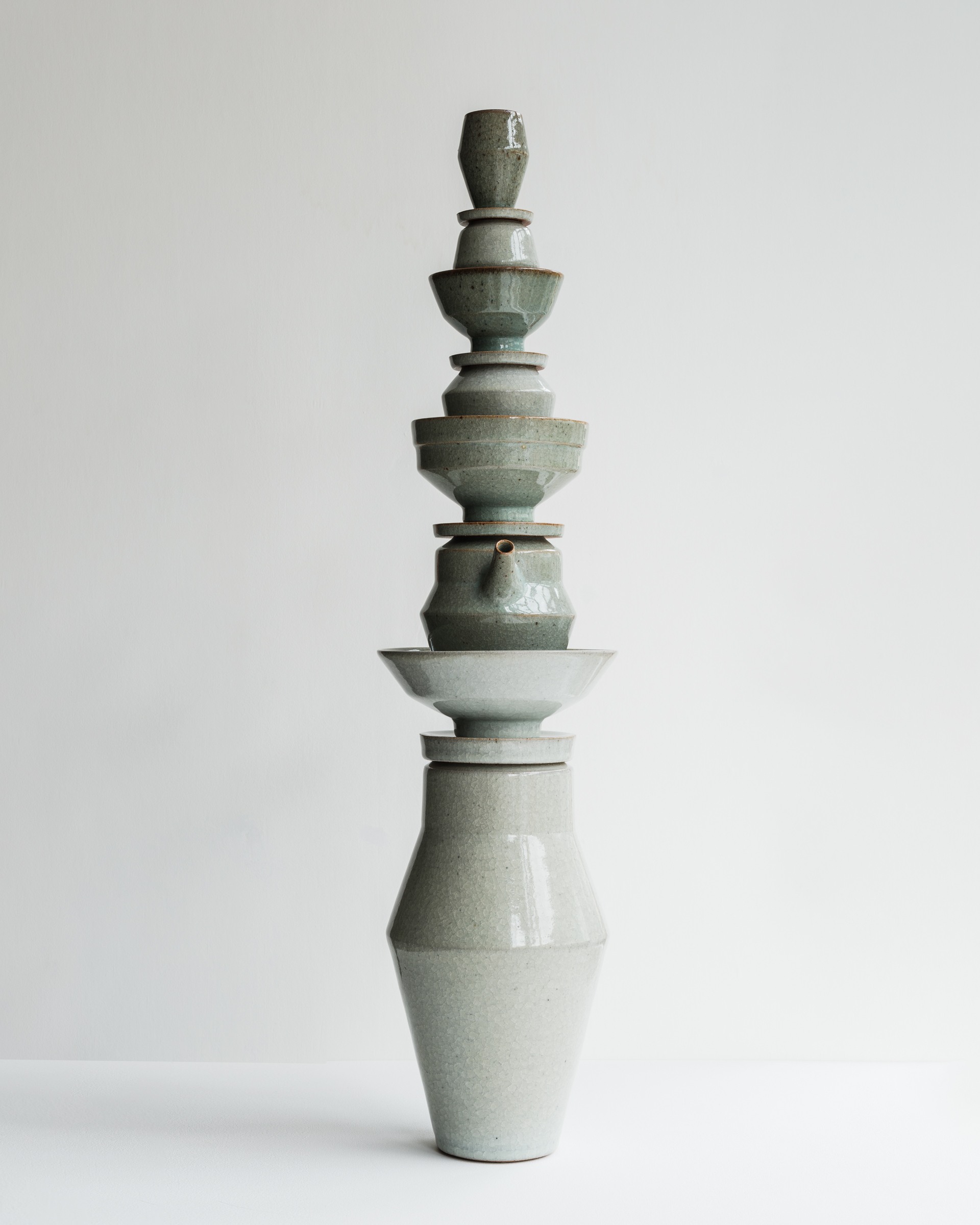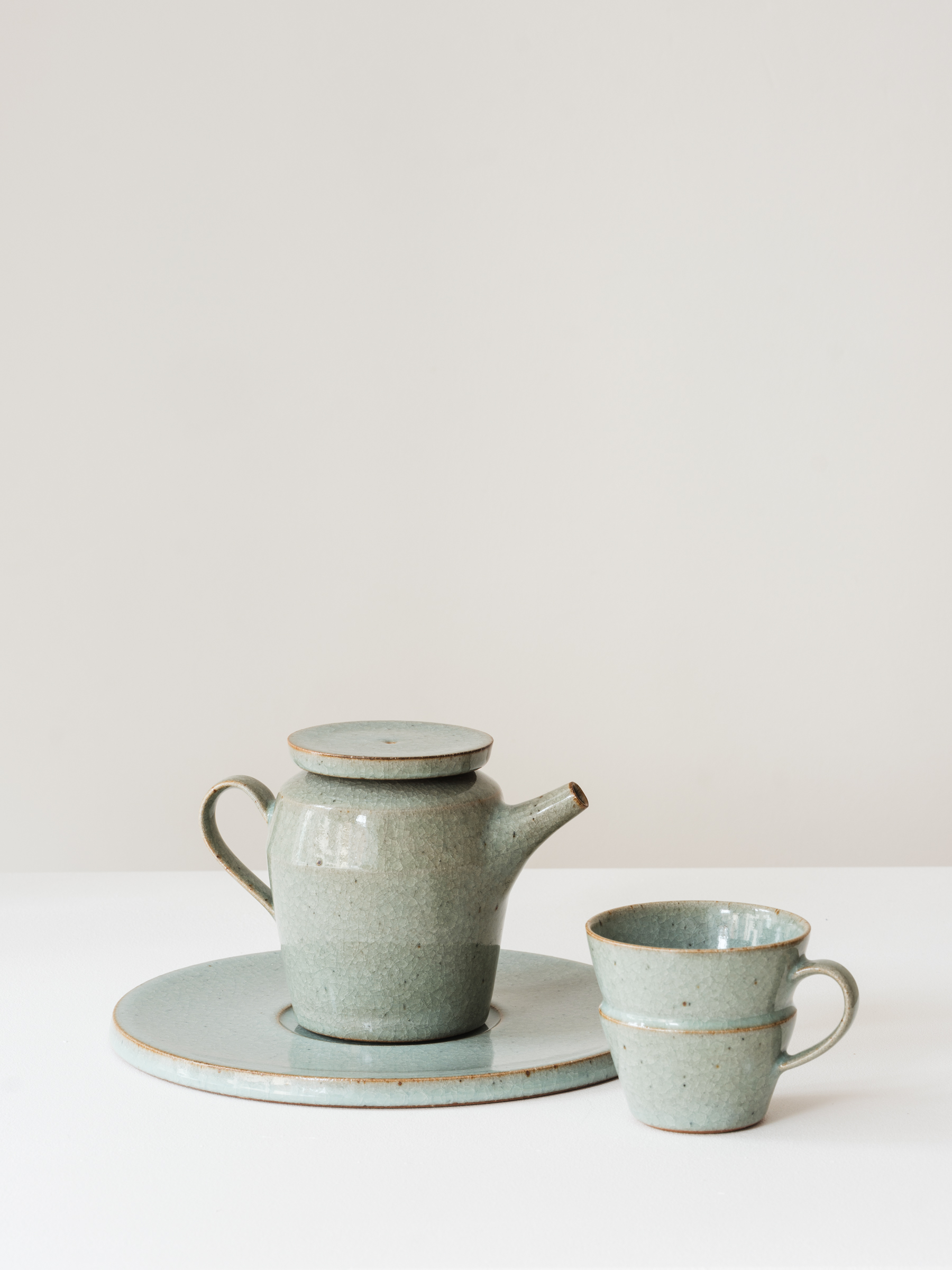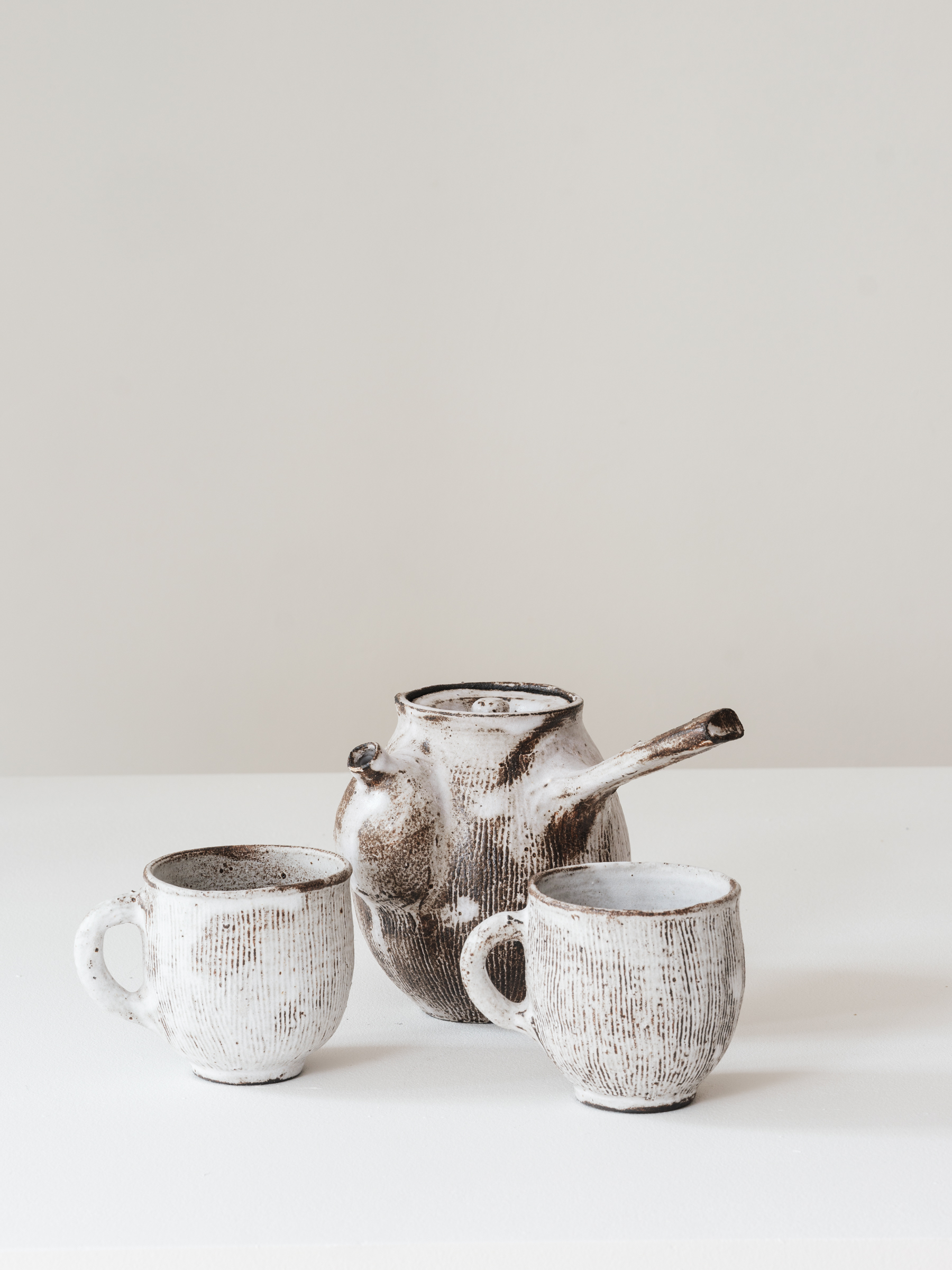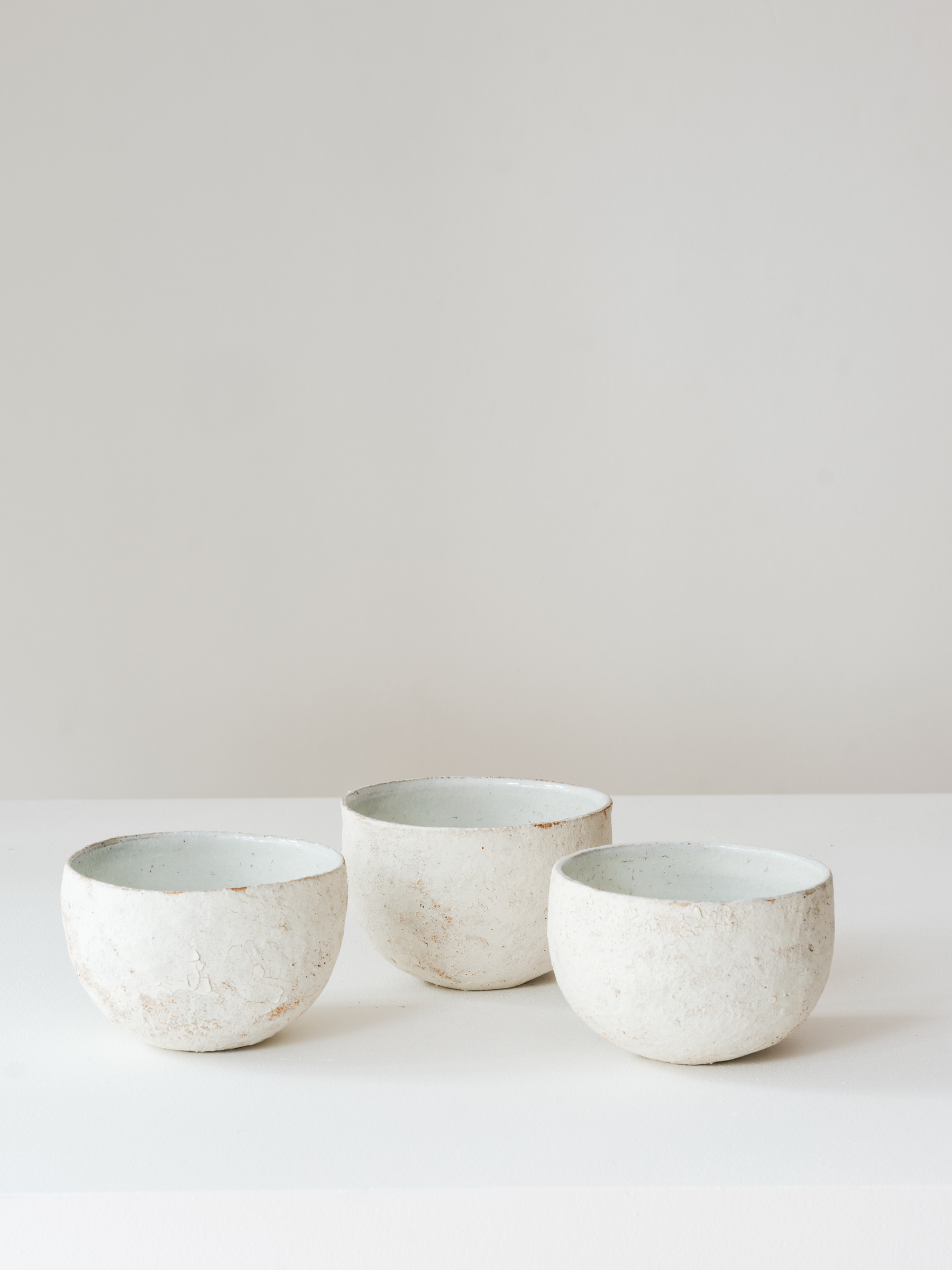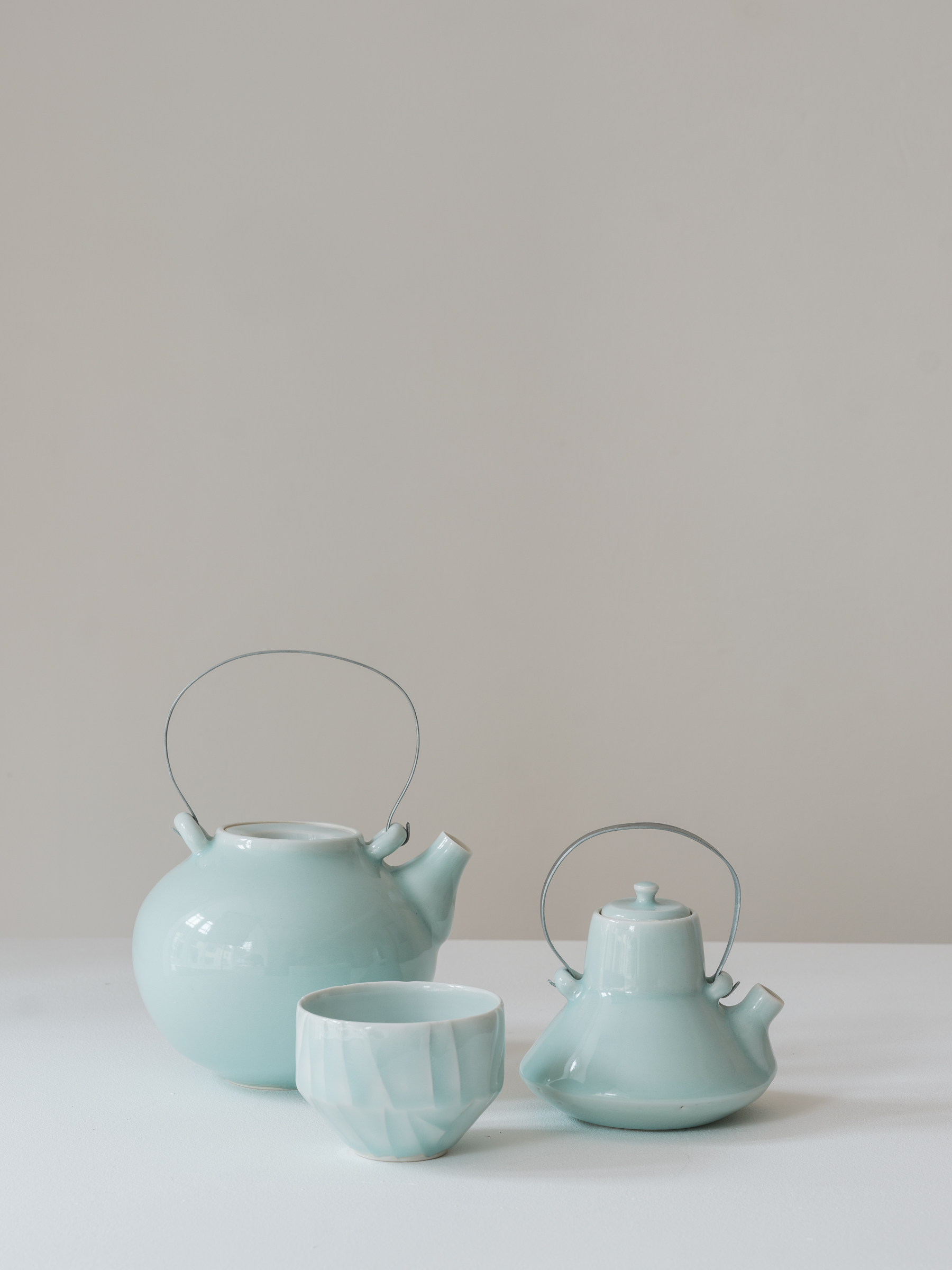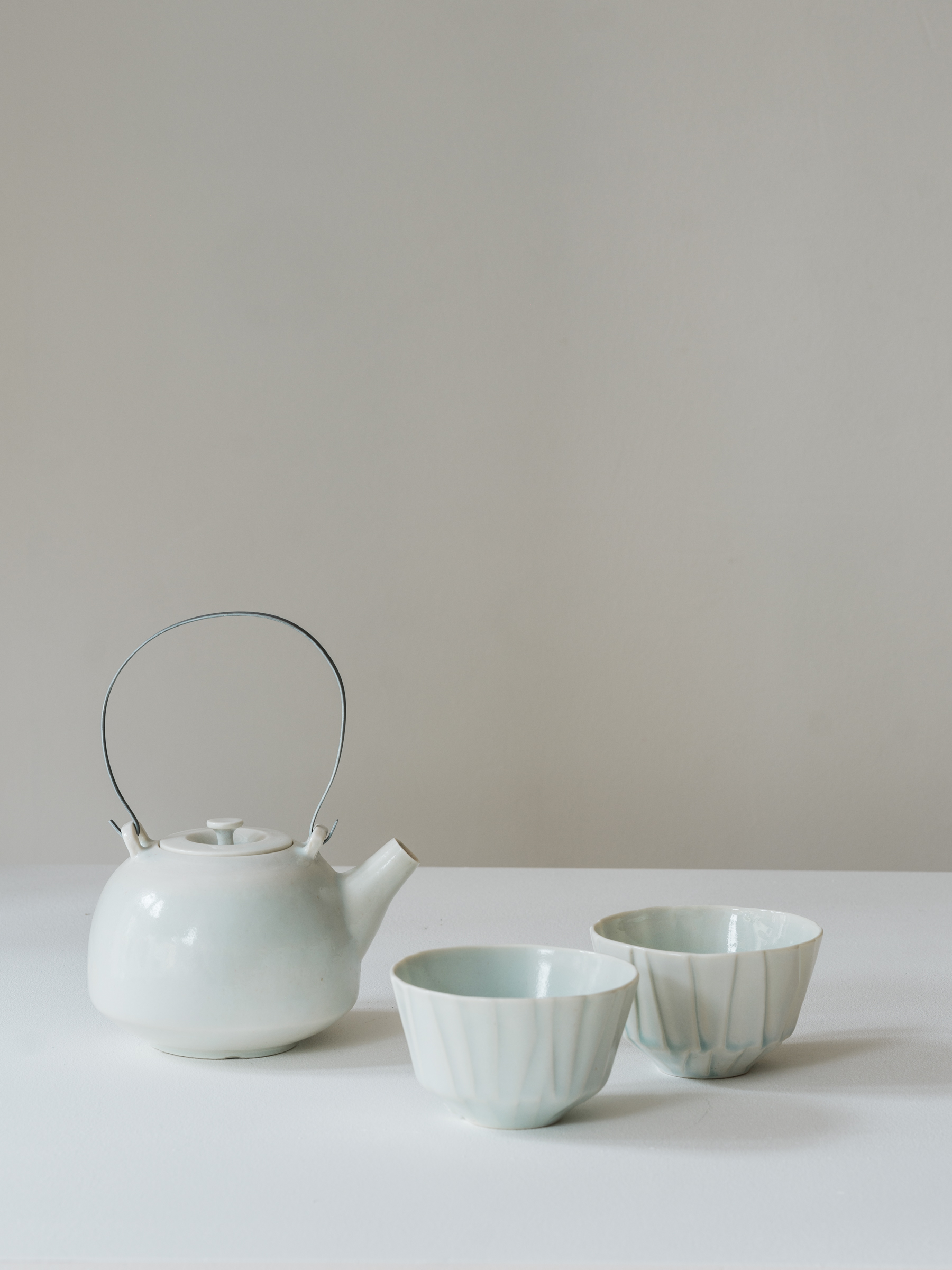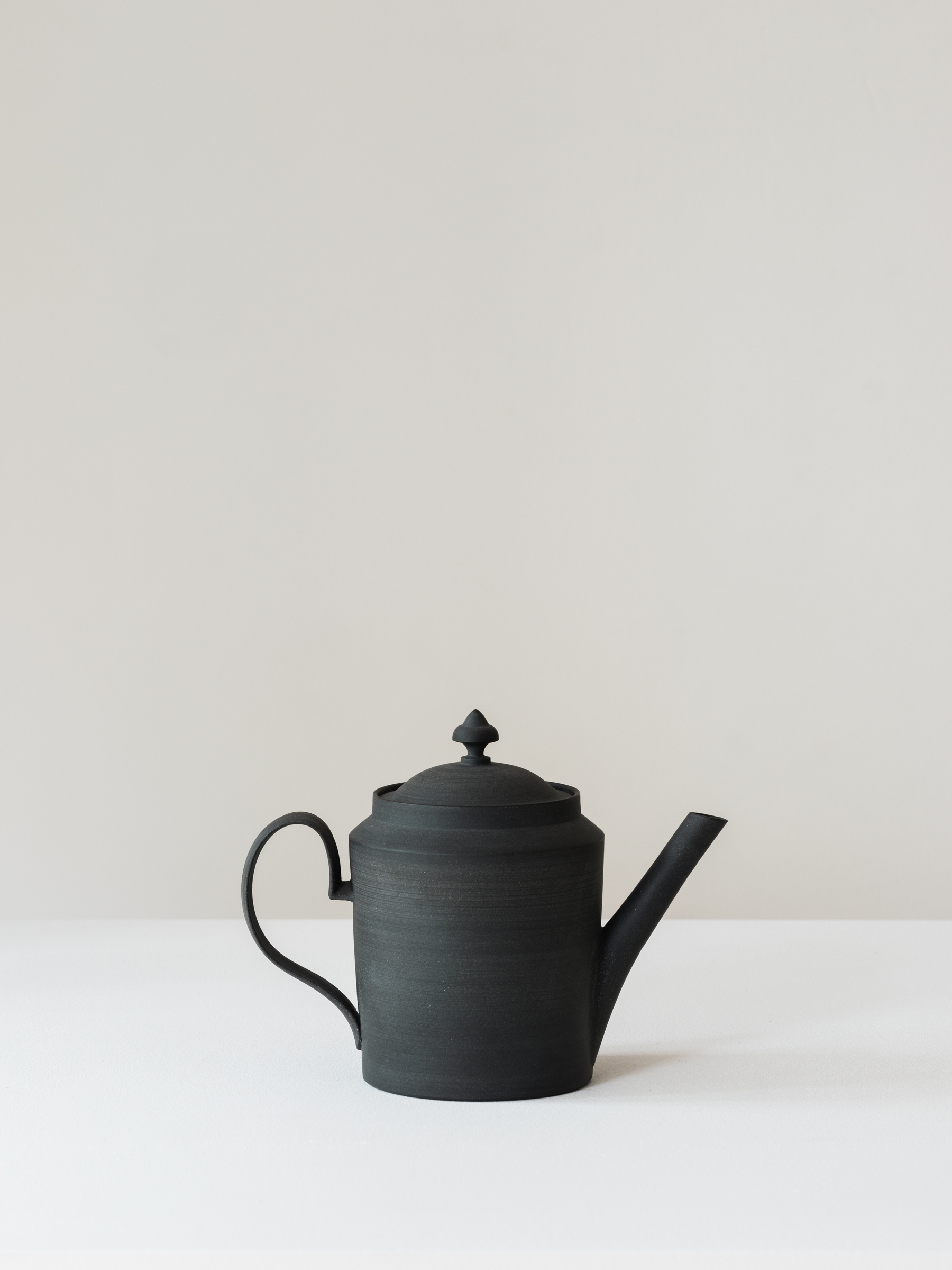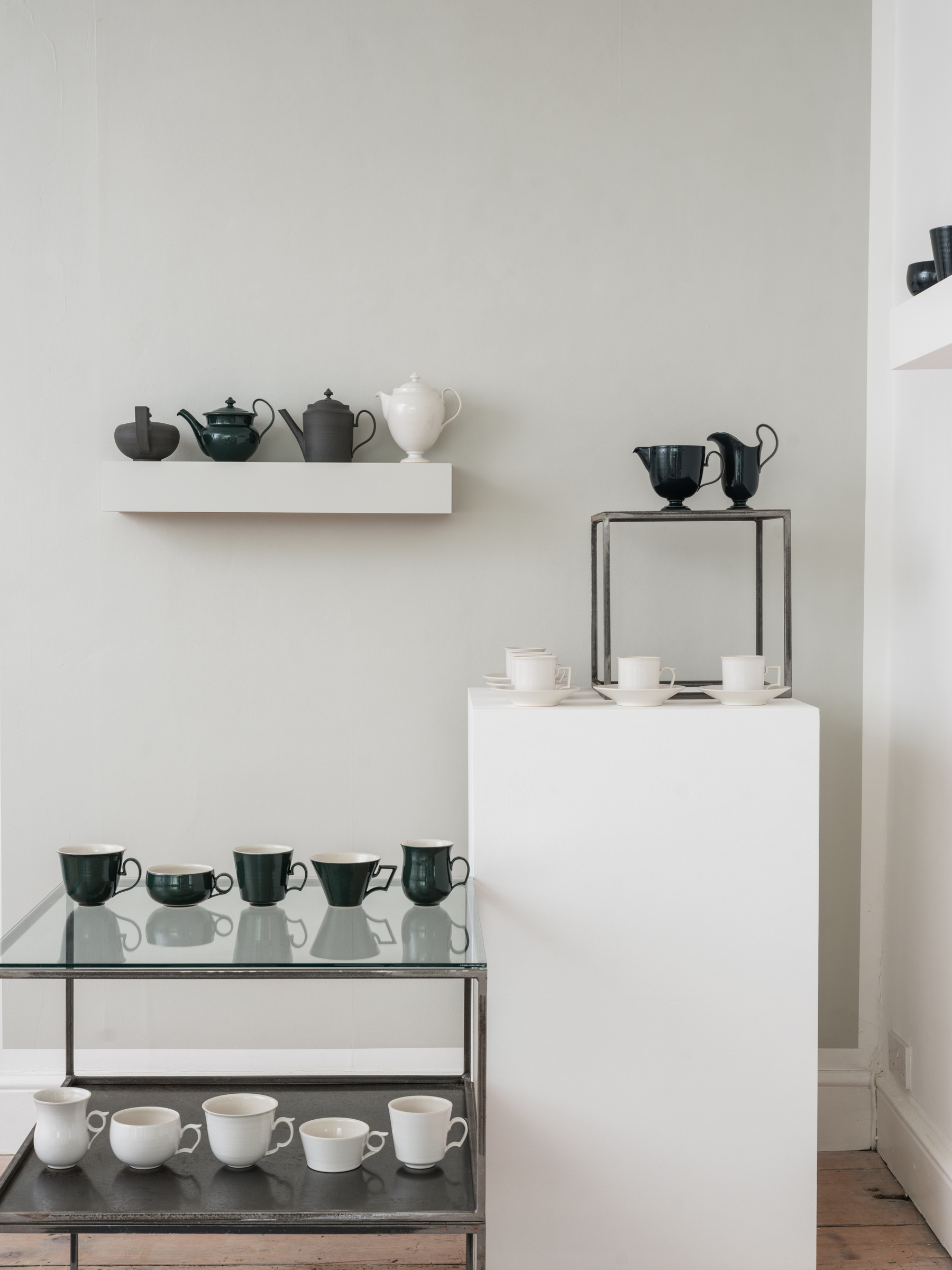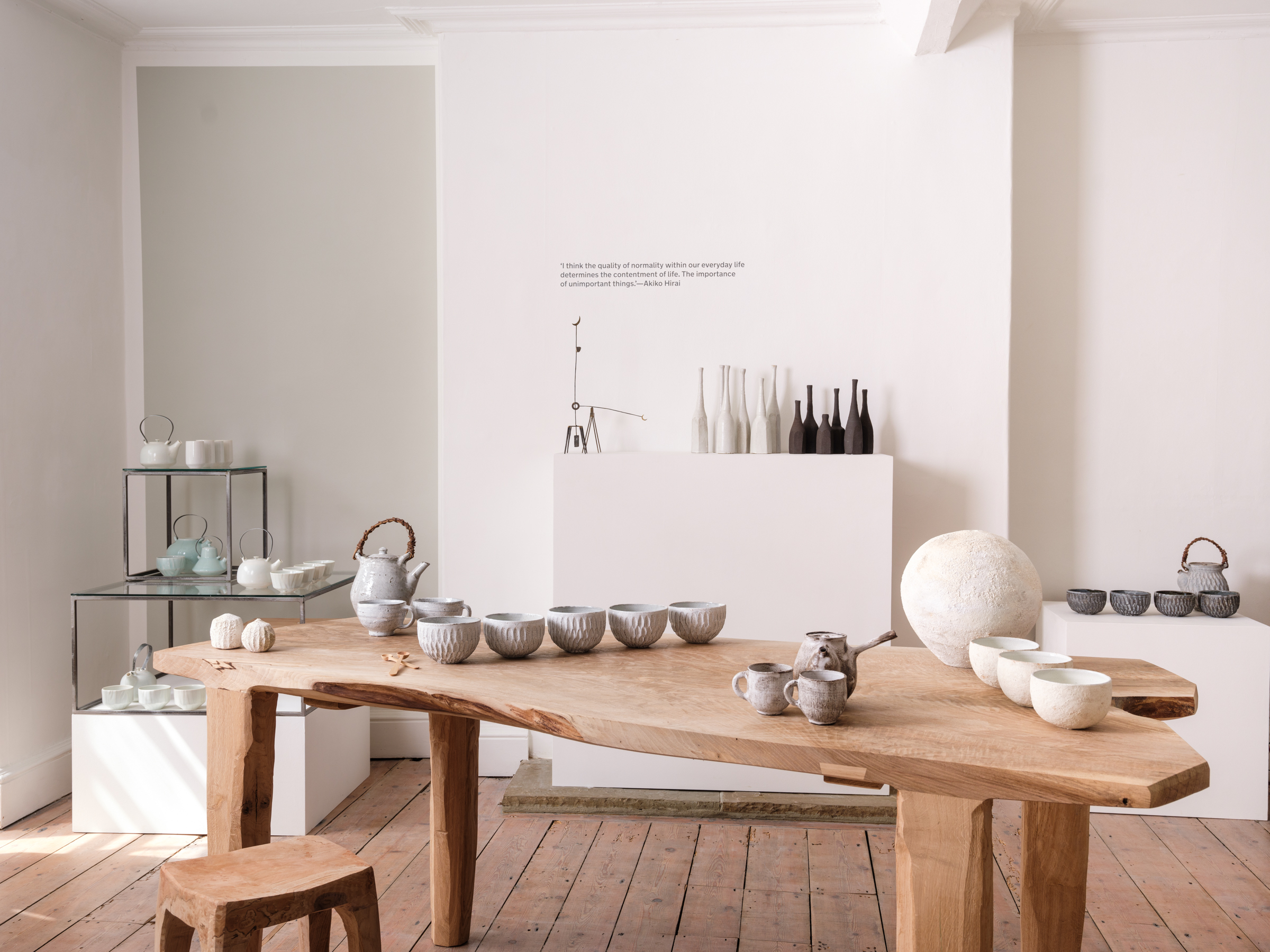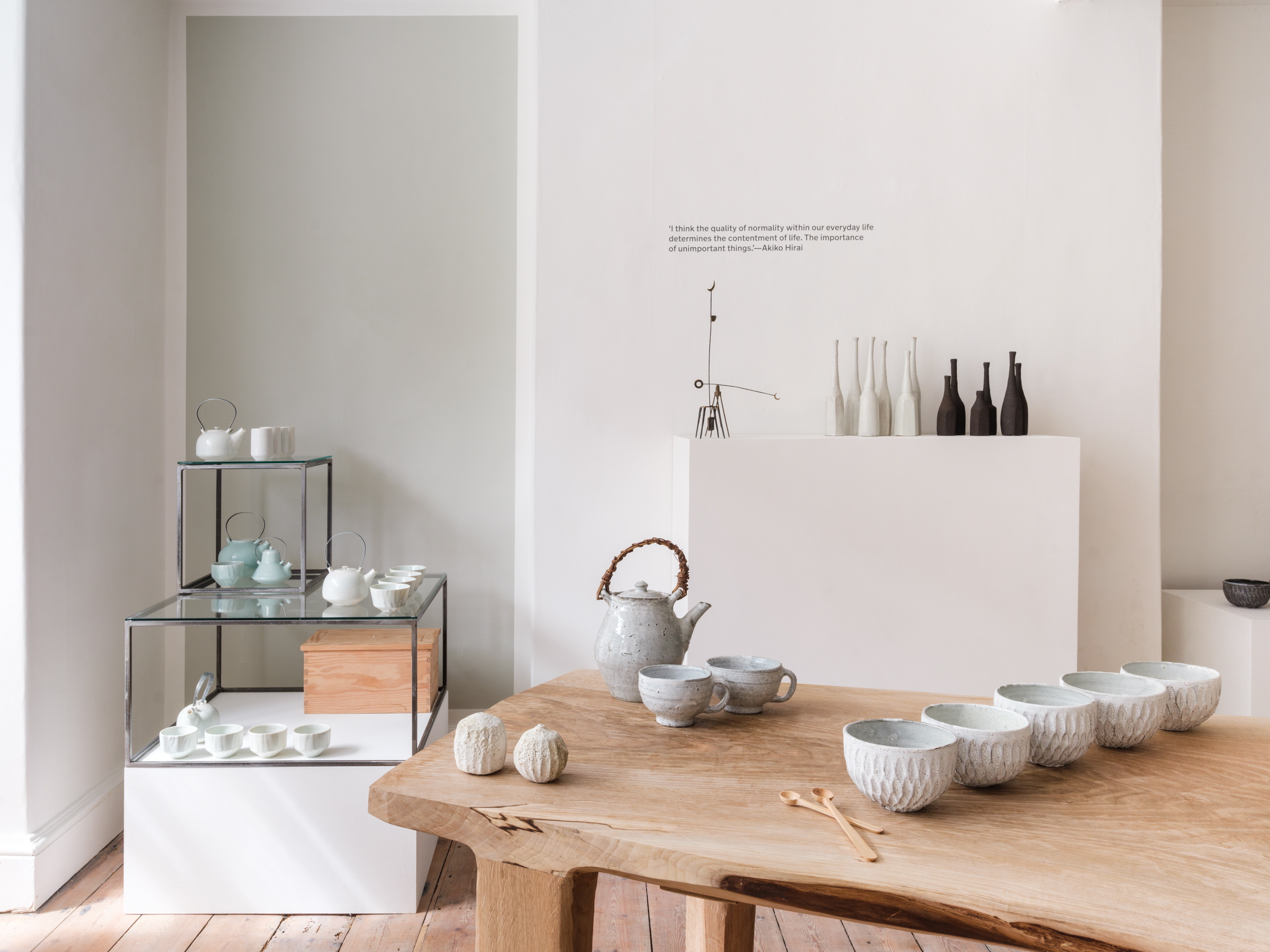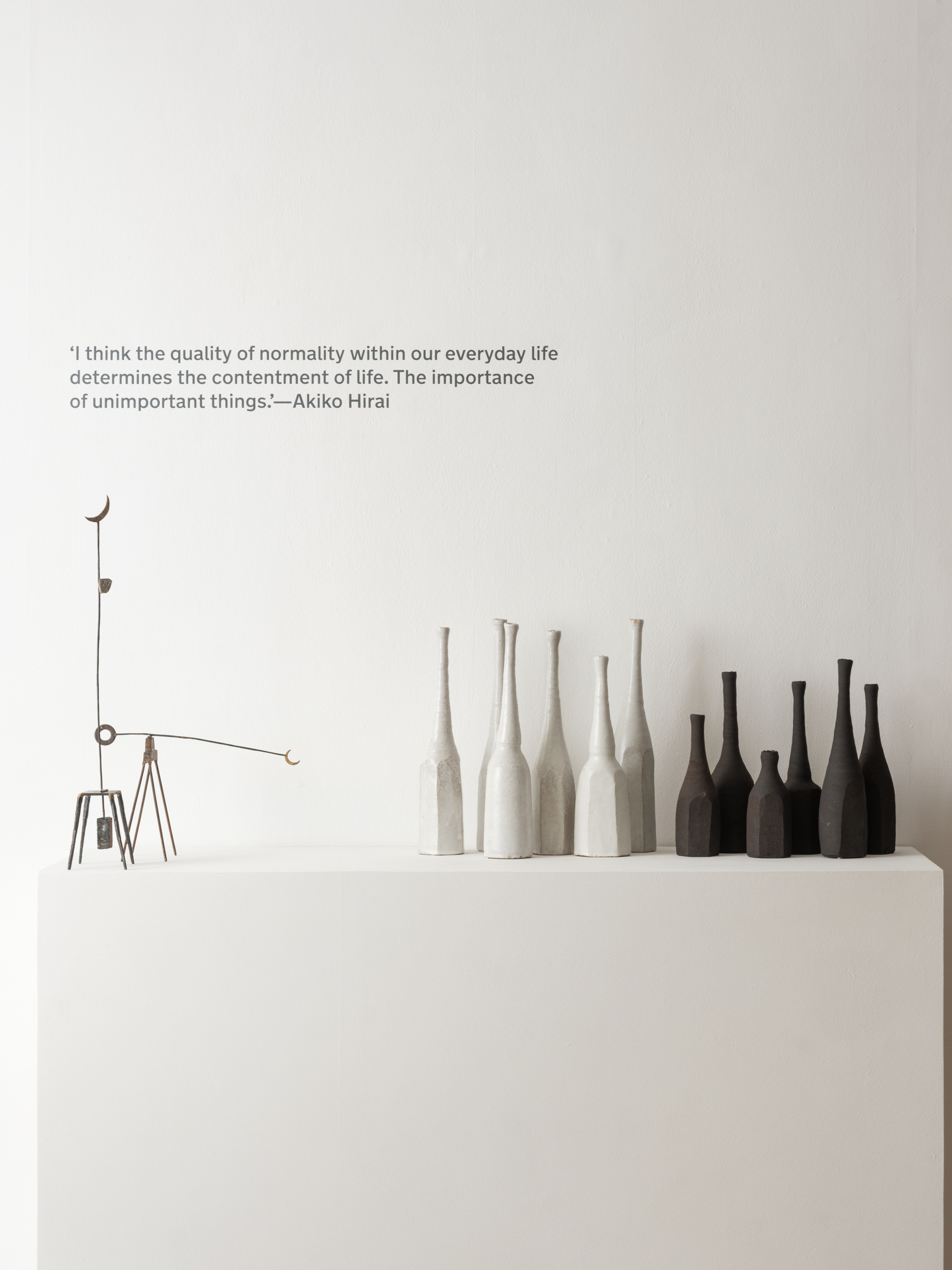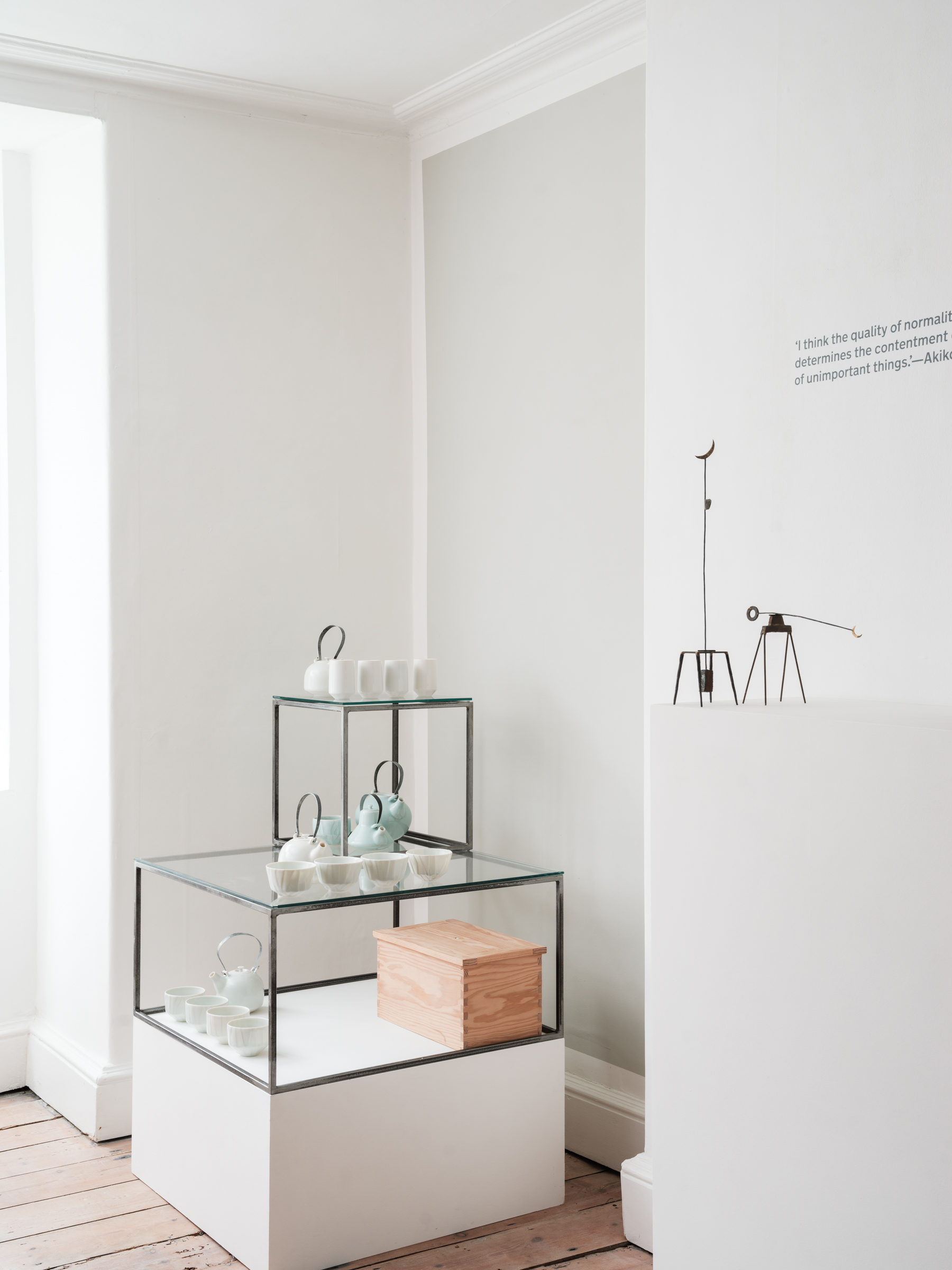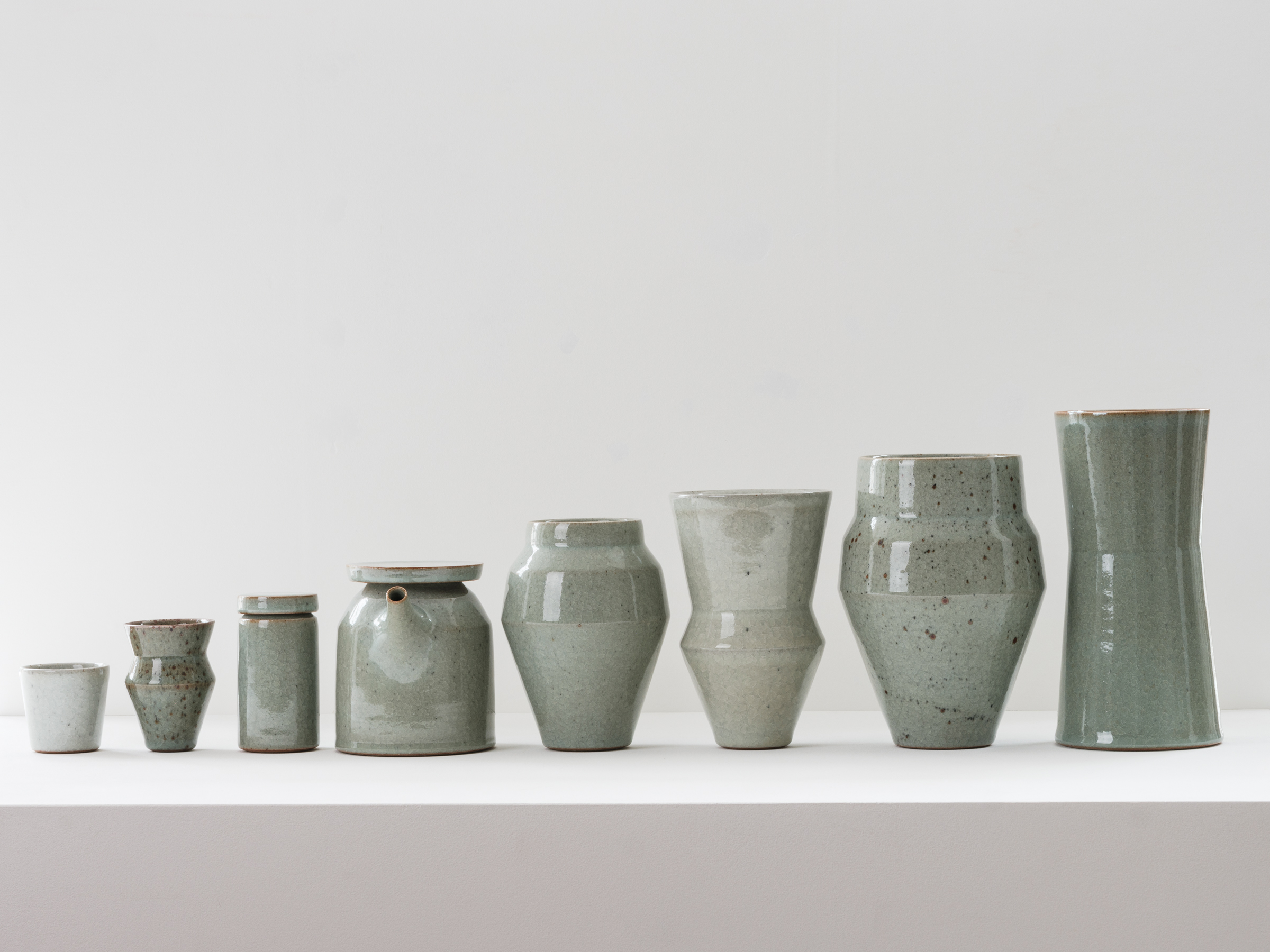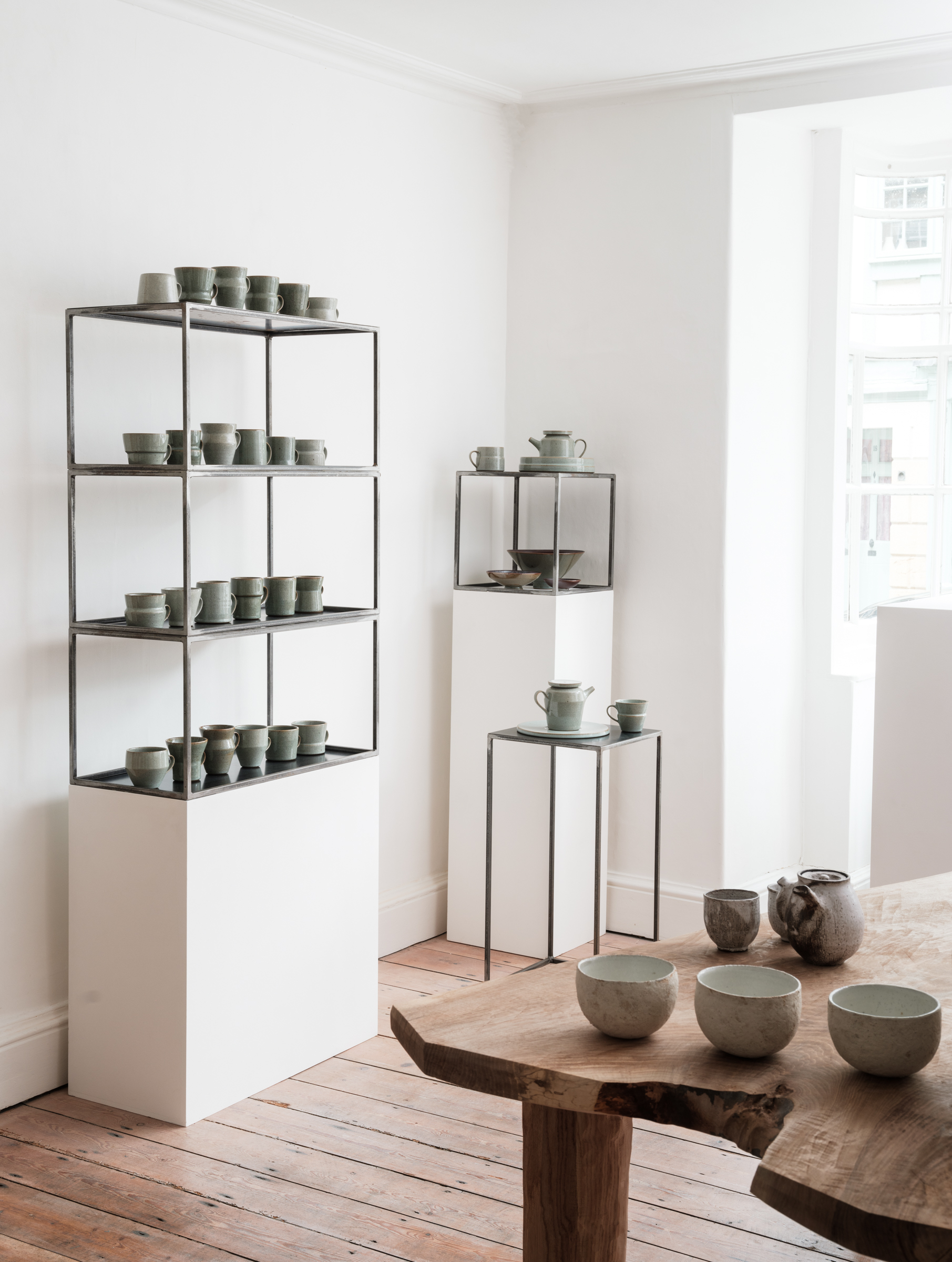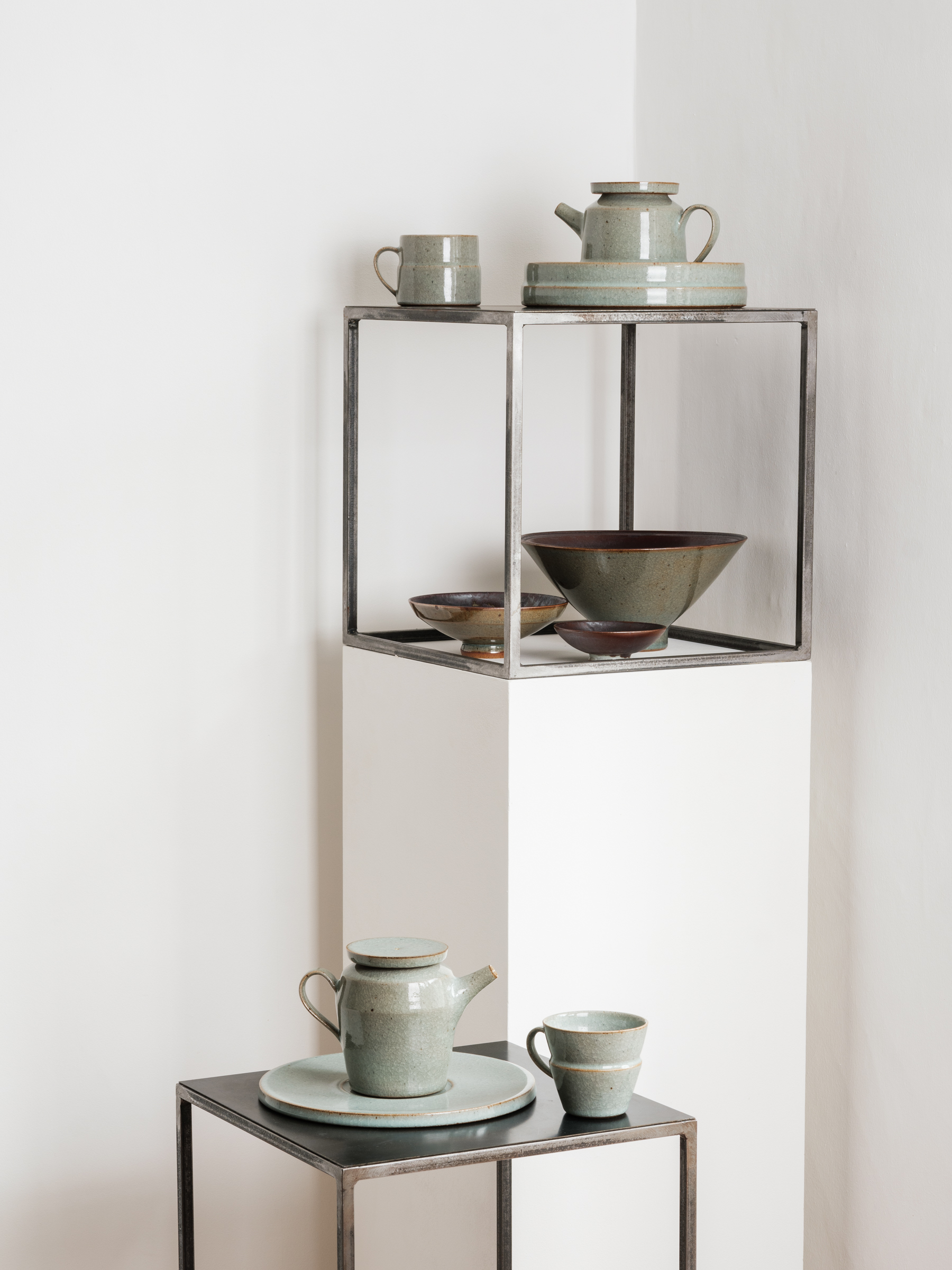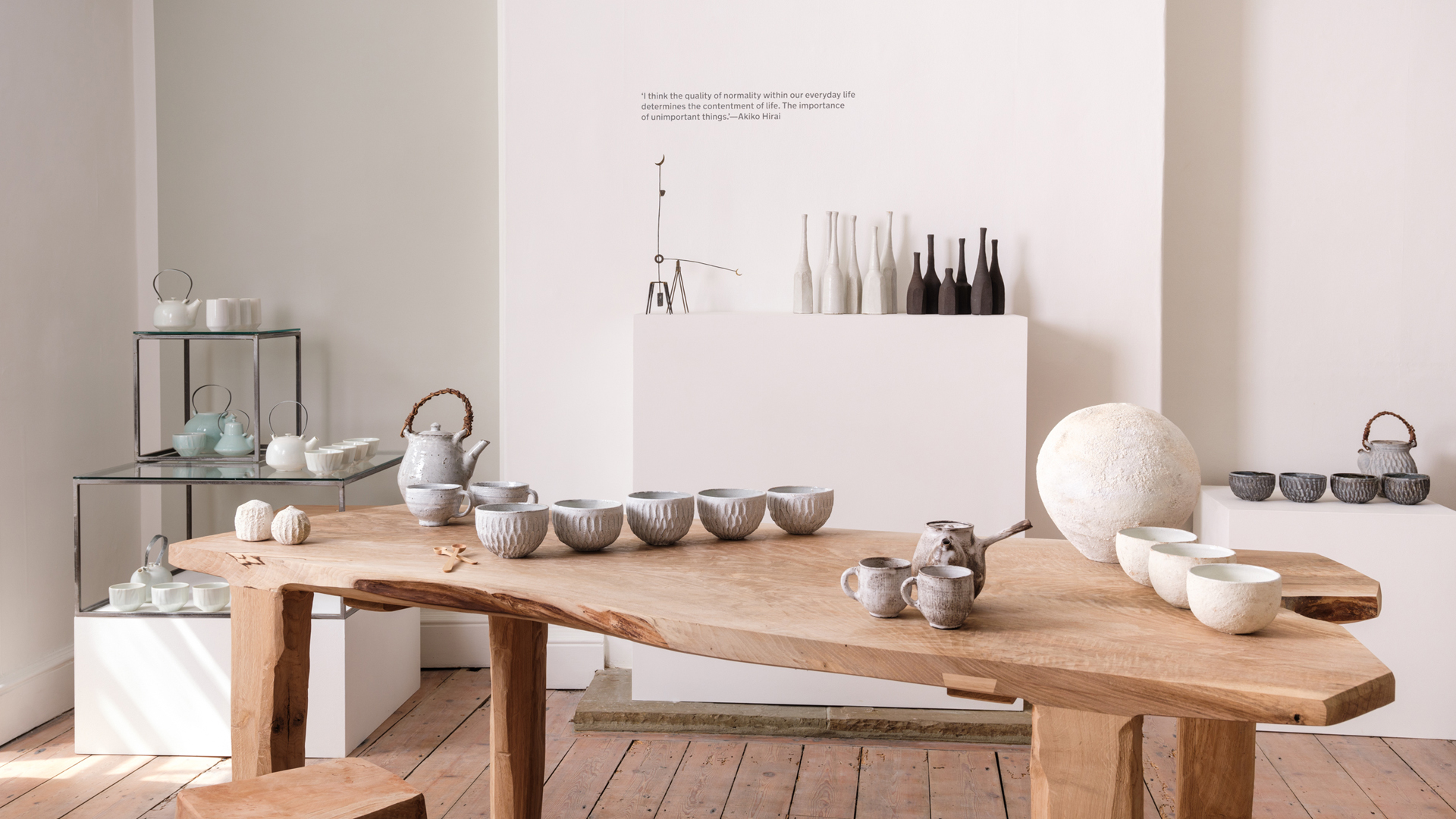
Hot Water for Tea
26 May – 28 July 2024
Thursday – Saturday, 11 am – 6 pm, Sunday, 11 am – 5 pm
Make, Somerset
‘I think the quality of normality within our everyday life determines the contentment of life. The importance of unimportant things.’—Akiko Hirai
About
About the Artist-Makers
Craig Bamford (SASA Works)
‘I use traditional and contemporary joinery techniques, inspired by the creative hand of our ancestors and the very understated and calming natural energy that emanates from wood—a quiet knowing stored within it; I aim to bring the reverence that the material deserves to all of the pieces.’—Craig Bamford (SASA Works)
Craig Bamford’s furniture pieces honor the sacred quality of the tree, the meeting between land and sky. The tree once cut reveals within its markings the details of its connection to place and to the elements. Bamford’s table and chair are made using the material as a guide to their design with the idea of creating simple forms that allows the functions of life around it to flow with ease and expansion. Craig Bamford (SASA Works) is an artist and architect working in London, UK. Raised in Kenya, the influence of the wild landscape and a focus on the handmade encouraged him to pursue studies in metalwork, jewelry and carpentry. When living in Nantucket MA, he discovered the possibilities of wood whilst working on traditional houses and spent many hours scouring beaches for old wood from jetties and boats to make furniture and objects. Inspired by his journeys, he decided to study architecture with a particular interest in vernacular architecture and elemental materials, combined with his practice as artist-maker.
Samuel Chatto
‘I hope that my vessels, with their weight and proportion, have the feeling of the maker’s hand, and therefore invite the viewer to hold and drink from them.’—Samuel Chatto
Samuel Chatto works from his studio in East Sussex, UK. Beginning his practice in 2018, he studied at North Shore Pottery, Latheron, Scotland, making functional objects inspired by the studio pottery movement and developing his passion for wood firing, digging clay and making glazes. Chatto is fascinated by the work of Bernard Leech and Shōji Hamada and the tradition of cultural exchange between Britain and Japan—especially the importance of the tea vessel. The cup, perhaps more than any other form, is a very intimate object, which Chatto believes must contain the perfect balance of weight, delicacy and attention to form. He regards the tea set as the perfect combination of form and function. In 2022, Chatto undertook a Make Hauser & Wirth residency in Scotland where he developed his pit fired ‘Cut Vessels.’ Developing his practice further, in 2023 he accepted an apprenticeship with porcelain master Yagi Akira in Kyoto, Japan. Learning the strict traditional Japanese technique of throwing was fascinating and often a completely opposite approach to Western working methods. He was predominantly working with porcelain, which was the most transformative aspect of the apprenticeship. For Chatto, porcelain is an immaculate material of memory, which keeps its own life throughout the process of throwing. The work he produced in Japan attempted to capture this sense of movement, fluidity and life.

Florian Gadsby in the studio, 2024. Photo: Catherine Garcia
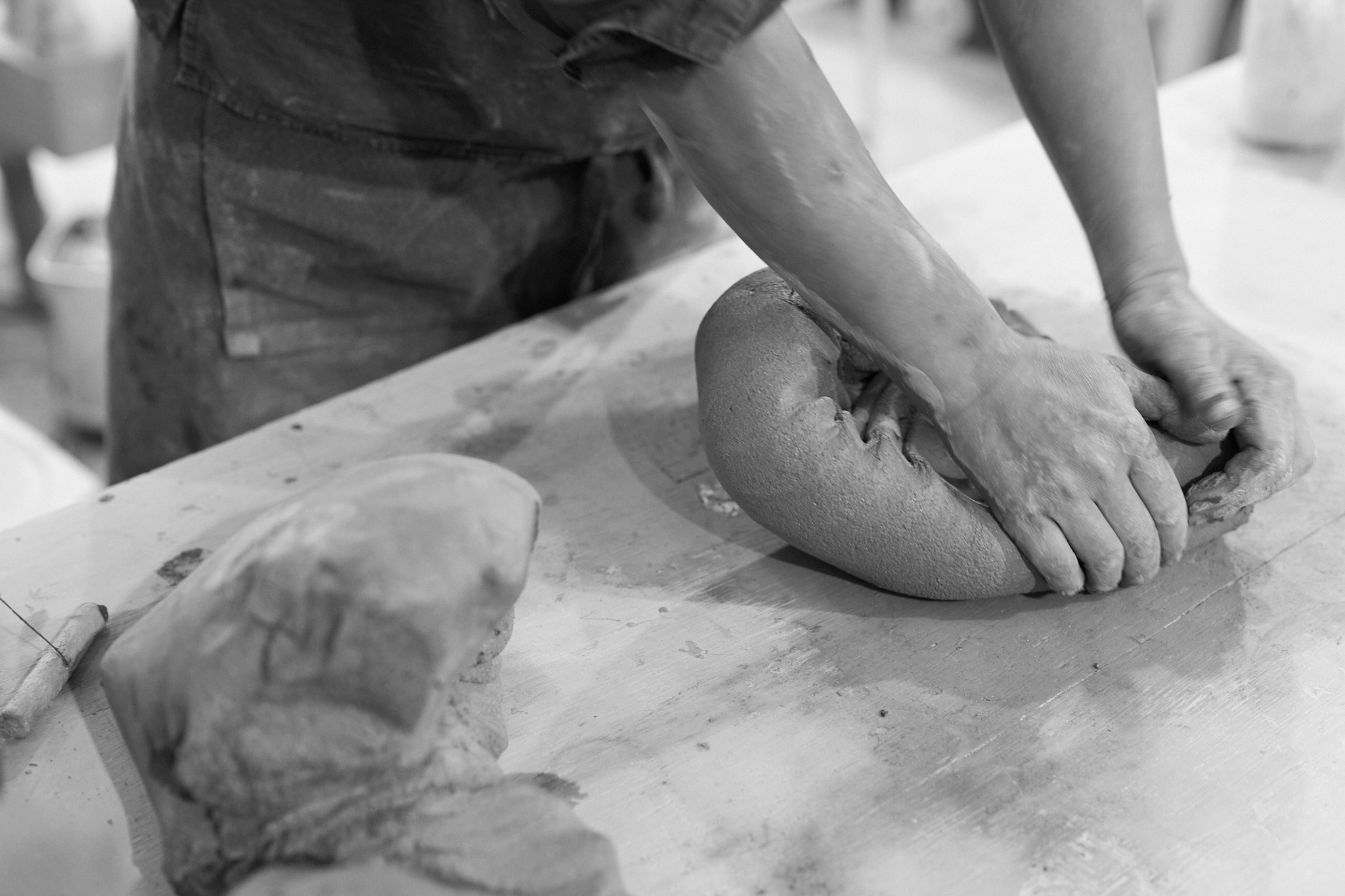
Akiko Hirai in the studio, 2022. Photo: Catherine Garcia
Florian Gadsby
‘There’s a romantic notion in creating something from nothing. From taking clay, dirt, earth, rocks and minerals from under our feet and turning it into an object that’s highly refined, delicate and light. Into an object that’s the opposite of the source materials used. It feels like sorcery, or like taking lead and turning it into gold, and I find that idea captivating.’—Florian Gadsby
Firing with a gas kiln, Florian Gadsby creates hand thrown stoneware, functional pottery, singular objects and vessel collections. His work is characterized by simple forms, angular and architectural, in a muted palette of jade celadon and feldspar grey. This chosen palette of greys and greens is sometimes speckled with rust, interspersed with metallic blacks, whites and browns. Gadsby combines material investigation and interpretation to reflect on the shaping of object experience. Working from his North London studio, alongside the practice of making pots, he also creates informative videos and documents his work online. Sharing the techniques central to his creations, these videos discuss and delve more thoroughly into his ideas and making practice. Gadsby undertook the DCCoI Ceramics Skills and Design Course in Thomastown, Ireland. He apprenticed to Lisa Hammond MBE from 2014 to 2017, learning to raw glaze and soda fire. A six-month apprenticeship with Ken Matsuzaki followed in Mashiko, Japan, where he trained to use a traditional kick wheel. In 2023, his book, ‘By My Hands,’ was published and coincided with an exhibition at Yorkshire Sculpture Park, Wakefield, UK.
Akiko Hirai
‘I like the nature of tableware that can be used. It can be very beautiful, it can be quite sculptural, but you use it every day, so you grow a special attachment to it. The beauty of tableware is not the tableware itself, but the interaction with an object or food or the people you use it for.’—Akiko Hirai
Akiko Hirai’s functional pieces draw on Japanese and British ceramic traditions. The works are deeply textured using rough, dark clay that is then glazed in soft whites, greys, greens and other natural colors, which create delicate veils of color between the body of the pot and its surface. Born in Shizaoka, Japan, Akiko Hirai came to England, UK to study ceramics at the University of Westminster and Central St Martins in London, UK graduating in 2003. After her graduation, Hirai established herself as an independent potter at her studio in North London. In 2005, she taught ceramics and became head of department at Kensington and Chelsea College in London, before leaving in 2015 to devote more time to her studio practice. Akiko Hirai’s ceramics are held in many private collections and displayed in museums worldwide including the Victoria & Albert Museum, London, UK; The Fitzwilliam Museum, Cambridge, UK; the National Museum of Ireland; and the Everson Museum of Art, Syracuse NY. She was shortlisted for the prestigious international Loewe Craft Prize in 2019.
Matthew Warner
‘Pots fascinate me because they embody and articulate so much information about society and culture. They are relics or signals of taste, social behavior and cultural history. Their forms are incredibly diverse and at the same time carry a universal understanding. These everyday objects span social divides and convey very concentrated messages about their environment.’—Matthew Warner
Matthew Warner is a London-based potter making refined and considered thrown ceramics. His work combines clarity of form with subtle nuances of throwing, creating pieces that are at once familiar yet intriguing, classical and modern. Matthew Warner completed his BA at Camberwell College of Art in London, UK in 2010. He went on to study under Julian Stair with the support of The Queen Elizabeth Scholarship Trust (QEST) and now works from his studio in southeast London. Matthew is inspired by the work of the 18th-century potter Josiah Wedgwood. His work featured in ‘Rites of Passage,’ Joanna Bird, 2023, London, UK; ‘New Areas: Contemporary Ceramics,’ Newstead Abbey, 2023, London, UK; Collect Fair, Joanna Bird, 2023, London, UK; ‘The Hamper & Scent of Summer,’ QEST / Fortnum & Mason, 2022, London, UK.
File Downloads
Download Press ReleaseInstallation Views
1 / 7
Current Exhibitions
1 / 12
